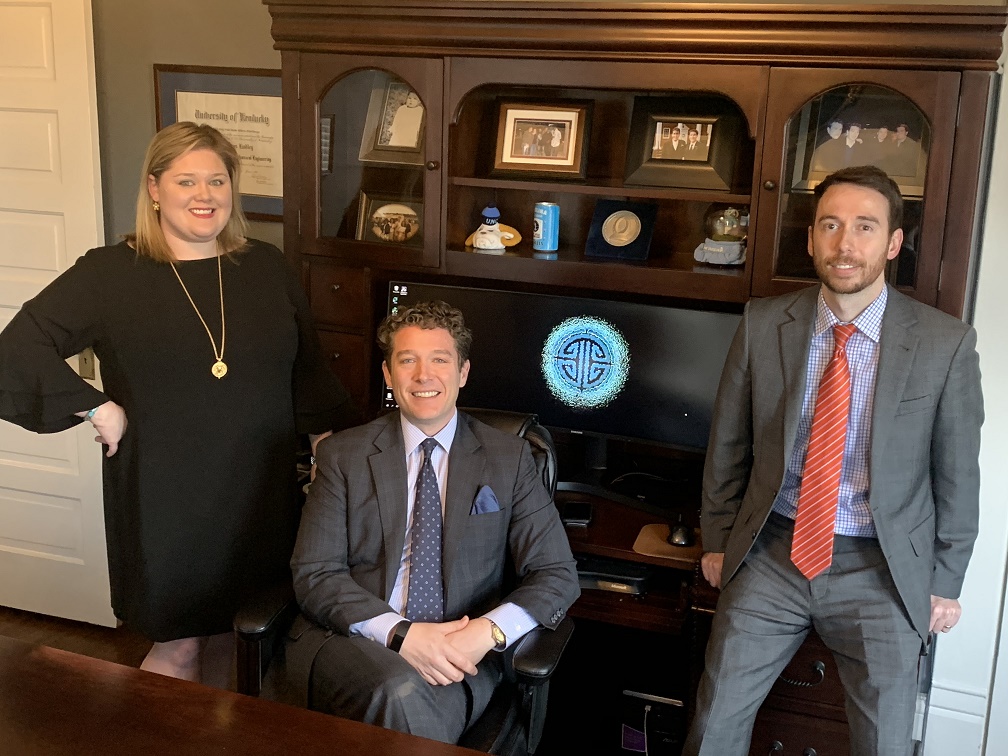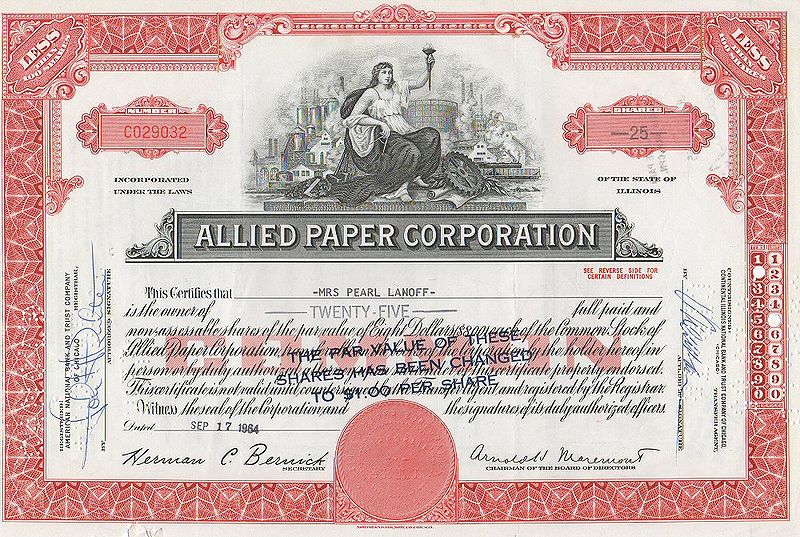Famous TV doctor Mehmet Oz—better known as “Dr. Oz”—recently accused his sister, Nazlim, of forging their late father’s will and stealing millions from his estate. A 2008 will left all of Mustafa Oz’s assets to the Mustafa Oz Foundation, a United States organization, and left Dr. Oz in charge of the foundation; however, Nazlim presented a new will dated 2018 after Mustafa’s death, which Dr. Oz claims is forged. Mustafa Oz passed away in Turkey in 2019, and litigation regarding his estate subsequently commenced in Turkey. Turkish prosecutors reportedly followed some of the money to bank accounts in at least three other countries. The Turkish estate dispute is proceeding alongside a…
-
-
NFTs: A GOOD INVESTMENT OR A LITIGATION RISK?
NFTs—or non-fungible tokens—have been making headlines in recent months as the newest investment craze. “At a very high level, most NFTs are part of the Ethereum blockchain. Ethereum is a cryptocurrency, like bitcoin or dogecoin, but its blockchain also supports these NFTs, which store extra information that makes them work differently from, say, an ETH coin.” NFTs can be anything digital but are currently extremely popular for buying and selling digital art. Popular NFT marketplaces include OpenSea, Rarible, and Nifty Gateway, and some NFTs have been bought and sold for tens of millions of dollars. This new digital artwork platform has, unsurprisingly, sparked many intellectual property disputes. Most recently, famous…
-
EARTH FARE AND THE “WARN” ACT
In early February, Earth Fare announced it would be closing all of its stores, likely meaning each of its 3,000 employees would be laid off. In response, two employees of the Asheville-based grocery store chain filed a class-action lawsuit alleging Earth Fare violated the Worker Adjustment and Retraining Notification Act (the “WARN Act”). Generally, the WARN Act requires employers with at least 100 employees to provide at least a 60-day advance written notice of plant closings and mass layoffs; however, the likelihood of success of the plaintiffs’ claims will be determined by the specific definitions provided in the WARN Act, as well as its exceptions and exemptions. The WARN…
-
IMPLIED EASEMENTS BY PRIOR USE
In B.V. Belk, Jr. v. VRS Magnolia Plaza, LLC, the North Carolina Court of Appeals addressed the question of when an easement can be implied by prior use. An easement is an individual’s right to use the land of another individual for a specific purpose. Frequently, easements are created by the express agreement of the landowner and the individual seeking to use the land; however, as the court in Belk confirmed, easements can also be created by implication. Factual History In Belk, B.V. Belk, Jr. (“Belk”) acquired 107 acres of undeveloped land in 1986. He then transferred title to a joint venture consisting of himself, as managing member…
-
BUNKER HILL COVERED BRIDGE CONSTRUCTION LAWSUIT
The Bunker Hill Covered Bridge is a well-known historical landmark in Claremont, North Carolina, originally built in 1895. The bridge was damaged due to excessive rain, flooding, and erosion in the area, which prompted the Historical Association of Catawba County (the “Historical Association”) to hire NHM Constructors, LLC (“NHM”) to repair the bridge. A dispute arose between the parties, NHM filed a lien on the property, and subsequently filed a lawsuit, seeking payments from the Historical Association. The Historical Association alleges NHM is not owed additional payments because the costs exceeded the budget provided in NHM’s bid. The case will largely turn on the type of contract the parties executed…
-
CONGRATULATIONS TO TREY LINDLEY, SATIE MUNN, AND KEVIN CLEYS FOR BEING RECOGNIZED IN SUPER LAWYERS MAGAZINE
Lindley Law is pleased to announce its recognition by the 2020 edition of Super Lawyers. Trey Lindley was selected as a Super Lawyer in Estate and Trust Litigation, his third consecutive year receiving this award. Trey was previously recognized as a Rising Star by Super Layers Magazine from 2012 through 2017, making this his ninth consecutive honor from the publication. Satie Munn and Kevin Cleys were selected as 2020 Rising Stars by Super Lawyers Magazine. This is Kevin’s first year receiving this award for Civil Litigation. This is Satie’s second consecutive year receiving the award for Rising Star in Estate and Trust Litigation. Each year, Super Lawyers recognizes the top…
-
PIERCING THE CORPORATE VEIL IN NORTH CAROLINA
In North Carolina, as in all states, a shareholder or owner of a business is generally not personally liable for the debts of the business. Additionally, Business A is generally not liable for the debts of Business B, even if the two businesses are associated entities. However, a recent North Carolina Court of Appeals decision illustrates that these limits on extended liability for corporate debts are themselves limited by the concept of piercing the corporate veil. The Court of Appeals Decision In General Fidelity Insurance Company v. WFT, Inc., et al., General Fidelity Insurance Company (“General Fidelity”) contracted with WFT, Inc. (“WFT”), for whom co-defendant Peter J. Willis…
-
SETTLEMENT PUTS STOP TO “WE CAN’T STOP” COPYRIGHT INFRINGEMENT LAWSUIT
Musician Miley Cyrus, record label RCA Records, and songwriter Michael May (a/k/a Flourgon) settled the parties’ dispute over Cyrus’s hit song “We Can’t Stop.” Flourgon alleged Cyrus’s hit unlawfully infringed copyrighted material in his previously recorded song “We Run Things.” What does the U.S. Copyright Act of 1976 (the “Copyright Act”) provide regarding music, and what damages are available to the owner of an infringed copyright? The Basics of Copyright Law As discussed in Lindley Law’s prior blog post, a copyright protects an original work of authorship “fixed in any tangible medium of expression.” “Copyright” is not a single right, in the literal sense. Instead, it refers to…
-
TORTIOUS INTERFERENCE WITH EXPECTED INHERITANCE
North Carolina recognizes a cause of action for tortious inference with expected inheritance. This cause of action can be confused with tortious interference with prospective economic advantage, which occurs in the context of a contract or potential contract. Conversely, tortious interference with expected inheritance occurs in the context of a will or estate, rather than in the context of a contract or potential contract. Further, unlike a cause of action for undue influence, which permits recovery by the testator (the person executing the will), tortious interference with expected inheritance permits recovery by the individual expecting to benefit from the testator’s will. The Elements To prove tortious interference with…
-
EPIC GAMES EMPLOYEE ALLEGEDLY LEAKS EPICLY SECRET DETAILS ABOUT FORTNITE CHAPTER 2
North Carolina-based Epic Games filed a lawsuit over the alleged leak of secret information related to Fortnite Chapter 2. The company claims employee Ronald Sykes violated the terms of a non-disclosure agreement by sharing information related to the new game, including new game-play features and a virtual map of the fictional game universe, prior to its public release. The success of Epic Games’ claims will primarily hinge on whether the non-disclosure agreement is enforceable and whether the allegedly leaked information constituted protected trade secrets. Non-Disclosure Agreements A non-disclosure agreement (“NDA”) is a contract, or part of a contract, that prohibits one or more parties from disclosing certain confidential…







